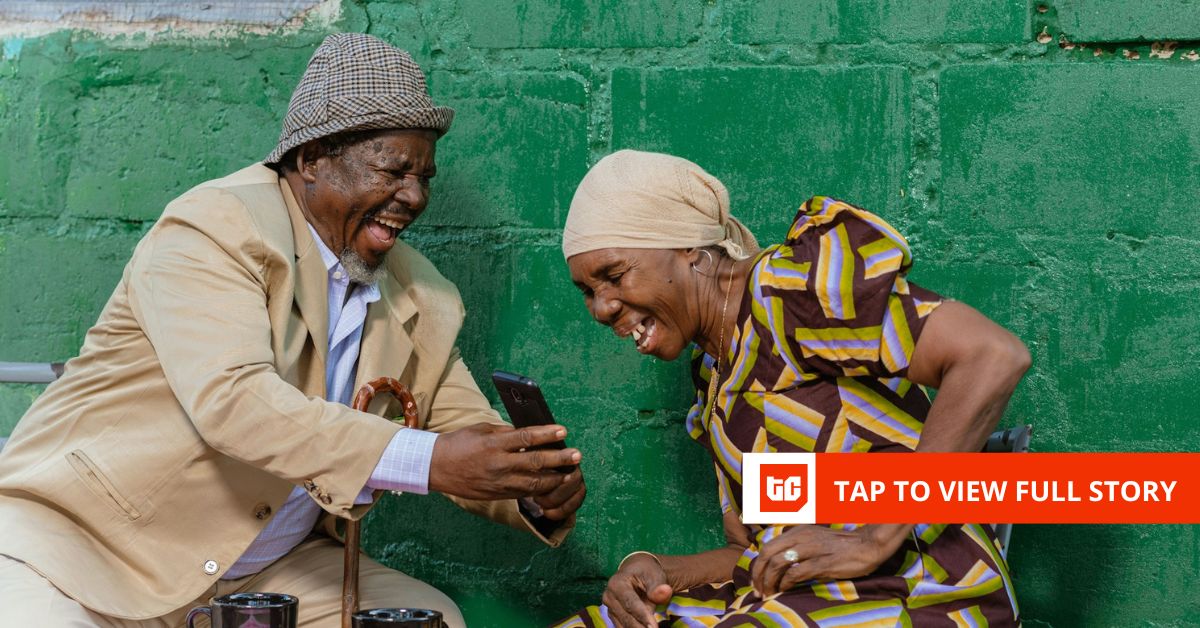I spoke to a business owner in his 50s who runs an audit & assurance firm. He’s been struggling to stay afloat for a while now. And at some point in our conversation, he paused, sighed, and said, “A lot is happening in the world, but our generation…we just can’t catch up.”
He went on about visibility: how everything happens online now, yet digital tools feel foreign. He wants to leverage AI, show up online, and reach the right people, but it all feels like it’s moving without him.
He’s not the only one.
Africa’s tech space is growing fast. But in that rush, we’ve quietly left a group behind: older Africans. We don’t build for them, nor do we explain concepts in a way that feels familiar to them. If that continues, an entire generation risks being digitally shut out.
Africa’s population aged 60 and above is growing faster than in any other region of the world. Between 2020 and 2050, the number of older adults across the continent is expected to triple. This isn’t a minor problem. It’s a quiet one, yes. But it’s growing fast, and it needs our attention.
Africa’s tech obsession with the young
When we talk about tech in Africa, we’re mostly talking to Gen Z and millennials. Nearly every product is built with them in mind. You’ll see it in how products are designed. It’s almost like the default African user is under 35 and tech-savvy.
According to Afrobarometer, older people are significantly less likely to use mobile phones, the Internet, or mobile money services—widening the continent’s digital divide.
To be fair, this obsession makes sense in some ways. Africa has the youngest population in the world. It’s not surprising that most founders, marketers, and investors put their energy there.
However, this goes beyond old age. We’re talking about parents. Grandparents. Business owners. Farmers. Retired teachers. Former civil servants. These are the people who hold cultural memory, economic power, and even political influence.
Yet, they’re not in user testing groups. They’re not the target audience in digital literacy campaigns. And so, when new tools roll out, they’re often left trying to make sense of it on their own.
What inclusion looks like in an AI world
People like to say, “Older people just need to be educated.” That’s always the first thing that comes up in these conversations. But I don’t think this is just about education.
We keep building for speed, for digital natives. We forget that millions of people didn’t grow up with touchscreens or smart assistants. They may own phones, yes. But that doesn’t mean they’re comfortable with them.
In South Africa, older adults mostly use push-button phones. They avoid modern smartphones because interfaces aren’t built for their comfort or familiarity.
Inclusion, especially in an AI world, can’t just be about training people to catch up. It has to be about designing differently. Imagine tools that work with voice commands in local languages. Imagine apps where everything is clearly labeled, with fewer steps and no hidden menus. Imagine a world where a 65-year-old could walk into a community center and get hands-on help understanding how to use an AI-powered health app. That’s what inclusion could look like.
Why including older generations benefits everyone
Many older Africans still have money, businesses, land, and savings. If the tools made sense for them, they’d use them and pay for them. But right now, we’re ignoring a ready market.
They also shape decisions. From family finances to how entire communities vote, their influence runs deep. Including them means faster adoption, not just for them, but for everyone around them.
There’s also the trust issue. Most older people don’t reject tech because it’s new; they reject it because no one’s taken the time to show them how it works. Yet once they do understand it, they’re often the first to encourage others to give it a try. And let’s not forget, many are still active in the workforce. They run shops, schools, clinics, and farms. If we build tools that help them stay visible and competitive, everyone wins.
Who gets to belong in the future?
It’s easy to assume the future is for the young. And in Africa, we hear it everywhere: the future of work, the future of tech, the next generation. But if the future is digital, then the question is: who do we want to bring with us?
Technology is access. It’s an opportunity. Inclusion involves creating a world where everyone, no matter their age, can belong.
Gina Onekpe is an SEO specialist and content writer with over six years of experience helping brands grow through organic search and high-performing content.
Mark your calendars! Moonshot by is back in Lagos on October 15–16! Meet and learn from Africa’s top founders, creatives & tech leaders for 2 days of keynotes, mixers & future-forward ideas. Get your tickets now: moonshot..com










